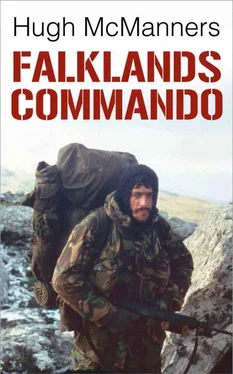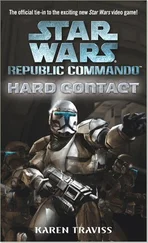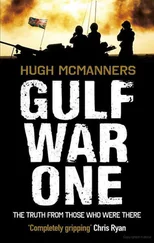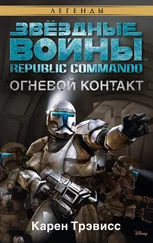Hugh McManners - Falklands Commando
Здесь есть возможность читать онлайн «Hugh McManners - Falklands Commando» весь текст электронной книги совершенно бесплатно (целиком полную версию без сокращений). В некоторых случаях можно слушать аудио, скачать через торрент в формате fb2 и присутствует краткое содержание. Город: London, Год выпуска: 2014, ISBN: 2014, Издательство: Nightstrike Publishing, Жанр: nonf_military, Биографии и Мемуары, на английском языке. Описание произведения, (предисловие) а так же отзывы посетителей доступны на портале библиотеки ЛибКат.
- Название:Falklands Commando
- Автор:
- Издательство:Nightstrike Publishing
- Жанр:
- Год:2014
- Город:London
- ISBN:978-0-992-81540-0
- Рейтинг книги:4 / 5. Голосов: 1
-
Избранное:Добавить в избранное
- Отзывы:
-
Ваша оценка:
- 80
- 1
- 2
- 3
- 4
- 5
Falklands Commando: краткое содержание, описание и аннотация
Предлагаем к чтению аннотацию, описание, краткое содержание или предисловие (зависит от того, что написал сам автор книги «Falklands Commando»). Если вы не нашли необходимую информацию о книге — напишите в комментариях, мы постараемся отыскать её.
Falklands Commando — читать онлайн бесплатно полную книгу (весь текст) целиком
Ниже представлен текст книги, разбитый по страницам. Система сохранения места последней прочитанной страницы, позволяет с удобством читать онлайн бесплатно книгу «Falklands Commando», без необходимости каждый раз заново искать на чём Вы остановились. Поставьте закладку, и сможете в любой момент перейти на страницу, на которой закончили чтение.
Интервал:
Закладка:
Experiencing bad conditions in training forces you to get your operating procedures absolutely right, because otherwise you spend more time surviving than doing the job. Training in atrocious weather means you are less likely to be found lacking on the day, when conditions may actually be easier. Our training was definitely realistic. The maxim ‘Train hard, fight easy’ is very true.
The Inter-City 125 sliced smoothly through the beautiful Cornish countryside, across the Tamar with a glimpse of gleaming, grey warships at anchor off Plymouth, then into the lush green of Devon. We emerged out beside a red sandstone cliff path, to pass by Dawlish golf course with the ocean immediately to our right-hand side. I wondered whether this recall was something to do with the Argentine scrap-metal men reported to be on South Georgia.
The day after returning from Norway, I’d concocted a spoof message about ‘Operation Penguin’, which set our battery second-in-command Captain Kevin Arnold telephoning the usual people we contact when sudden moves are afoot. Kevin was easily fooled because in our line of business you tend to look on world affairs with half a mind to participation. A panic move to Antarctica having just returned from Norway and the Arctic was not so surprising. But April Fool’s Day had passed so now the joke had backfired on me. A god with such a sense of humour would be hard to handle.
So, I reasoned on the train, it was probably the Falklands.
Back at the playing fields and grey, modern buildings of RM Poole, the camp was in turmoil. The Argentinians seemed poised to invade the Falklands, and so Landing Craft Company, the Special Boat Squadron and the Battery were getting ready to go.
The Falkland Island Garrison force, a company of Royal Marines known as Naval Party 8901, were in the middle of the process of swapping over. The majority of the new detachment had left RM Poole a week earlier. The last few troops to go were still here, after completing their six months’ training and preparation. We’d come to know them well, so if the Falklands were to be invaded, we’d all have a personal involvement in this crisis.
There was a lot of Falklands experience at Poole. Several ex-NP8901 worked there. They now came forward with maps, photos and even cine film taken during their tours of duty there. Watching television news in the anteroom of the officers’ mess, while drinking tea and munching toast, we watched as the story unfolded – with disbelief like every other viewer, but with a little more bated breath, and a lot more personal interest.
When the first TV pictures of the invasion were broadcast, the ex-NP8901 hands were able to point out exactly what we were seeing in valuable detail. We also saw shots of our friends spread-eagled on roads, being searched at gunpoint by Argentine Special Force soldiers.
NP8901 was a token force, not seriously intended to fight, although they did until the Governor ordered surrender when overwhelming odds made further resistance and loss of life pointless. We were very relieved when later we learned they’d all returned safely to the UK. Characteristically, they then lobbied furiously to be re-armed and sent south again – which is what happened.
The next few days were chaotic, telephoning round Britain for equipment that we had either not been permitted to have, or that we were due to have in some unspecified future. The floodgates were open and there were no problems. Storemen, dug out of their beds at 4 a.m., were not only polite and extremely helpful, but asked if there was anything else that we might need. They even arranged transportation! Captain Bob Harmes, our admin officer, lied furiously for days on end, getting us equipment of which we had previously only dreamed.
We watched the news with astonishment, as armoured cars drove through Port Stanley and the story of the brave fight by NP8901 unfolded. It was chilling to see weaponry that might end up shooting at us, and the soldiers that were to become our ‘enemy’.
By contrast to the confusion elsewhere, it was a simple matter to get 148 Battery ready to go. The Duty NCO had phoned everybody up and we all came in, from wherever we had managed to get. Captain Willie McCracken and his team were deep in the New Zealand bush on an exercise, so took a few days longer. Our personal equipment, massive bergen rucksacks and webbing belt-fighting order were lined in our parachute training hangar according to which team we were in.
But once we were ready to deploy, the confusion started, with an endless stream of contradictory instructions and questions. What vehicles should we take – if any? Did we need to take skis, the over-snow BVs (bandwagons) and full arctic equipment, and would we need the boats? The only way to mitigate this confusion was to take everything – as we did.
The Battery never had a send-off as such. We simply rushed away to join various ships and aircraft, usually with very little warning. I do remember however a gathering at which we were told (by an unpopular and I thought miscast major) that we were off for at least three months, which would be spent getting bored at sea. He urged us not to get the idea into our heads that we were going to fire bullets at Argentinians. His final encouraging and prophetic remark was that if we fired any 4.5-inch naval shells into Port Stanley he would “eat his boots”.
I was due to be the first off the mark with my second-in-command Nick Allin and an ad hoc team. My usual FO1 team had been together for some time, but this strong and experienced group was split up in what I thought a misplaced attempt to spread expertise throughout the battery. Nick Allin and I were cross about this; in particular we lost our ‘sailor’ Stan Hardy, who was also a medic, at just the time we were most likely to need one. I’d sent Stan to get hands-on experience in the casualty department at Poole General Hospital, and he’d also handled gunshot wounds and other injuries and illnesses during a stint with me running jungle warfare training in Belize, Central America.
However, Bombardier Nick Allin remained my second-in-command. We’d been working together a lot over the last five years, and knew each other very well. In fact, his marriage was the first social event I’d attended in the battery when I first joined, and we’d spent plenty of time with each other, on exercises and socially. Nick is a cheerful and quite noisy bloke with a very sharp sense of humour that gets people working and keeps them amused. He comes from Okehampton and as a result gets quite a lot of stick about his ‘janner’ accent and the shortcomings of being a country boy. He replies to such sallies very sharply and with the appropriate references to the origins, parental, geographical or otherwise, of the critic. Nick was also a Royal Navy lightweight boxing champion.
My new sailor was RO1 Steve Hoyland, a very bright, cheerful Northerner from Middlesborough (’Burra’ as he used to call it) who had the alarming habit of removing his front teeth and grinning through the gap. He’d been a radio operator on several big RN ships before coming to us, recently completing all the courses, with FO1 being his first operational team. When we were particularly cold, wet and miserable, Steve delighted in wishing himself back on board these ships. He’d paint pictures of the dogwatch lounging about in the warmth, making cups of coffee then sauntering off to their nice warm ‘pits’ (bunks).
Gunner ‘Des’ Nixon was a Yorkshireman, older than the average gunner, having left the Army and then come back in. He was a very experienced soldier who’d been a paratrooper in 7 thRegiment Royal Horse Artillery, part of the Parachute Brigade. Des had been a gun ‘Number One’, in charge of a gun and its detachment. He’d left the Army, but after several adventures and time spent working on building sites, had decided to come back in. To do so he’d to relinquish his former rank of sergeant and start again as a Gunner. [1]He was a sharp as nails and absolutely uncrackable, with a direct but often very gentle concern for others and sense of humour. His shortness and fair hair made him seem a suitable victim to anyone looking for trouble, but when pressed the Nixon reaction was swift and absolute. The rest of the team referred to him as the ‘Old Man’, or ‘Des the Shovel’, after an unfortunate evening in Norway when a group of much larger Royal Marines made the mistake of pushing him around. More often than not the ‘Old Man’ showed them the way home.
Читать дальшеИнтервал:
Закладка:
Похожие книги на «Falklands Commando»
Представляем Вашему вниманию похожие книги на «Falklands Commando» списком для выбора. Мы отобрали схожую по названию и смыслу литературу в надежде предоставить читателям больше вариантов отыскать новые, интересные, ещё непрочитанные произведения.
Обсуждение, отзывы о книге «Falklands Commando» и просто собственные мнения читателей. Оставьте ваши комментарии, напишите, что Вы думаете о произведении, его смысле или главных героях. Укажите что конкретно понравилось, а что нет, и почему Вы так считаете.












